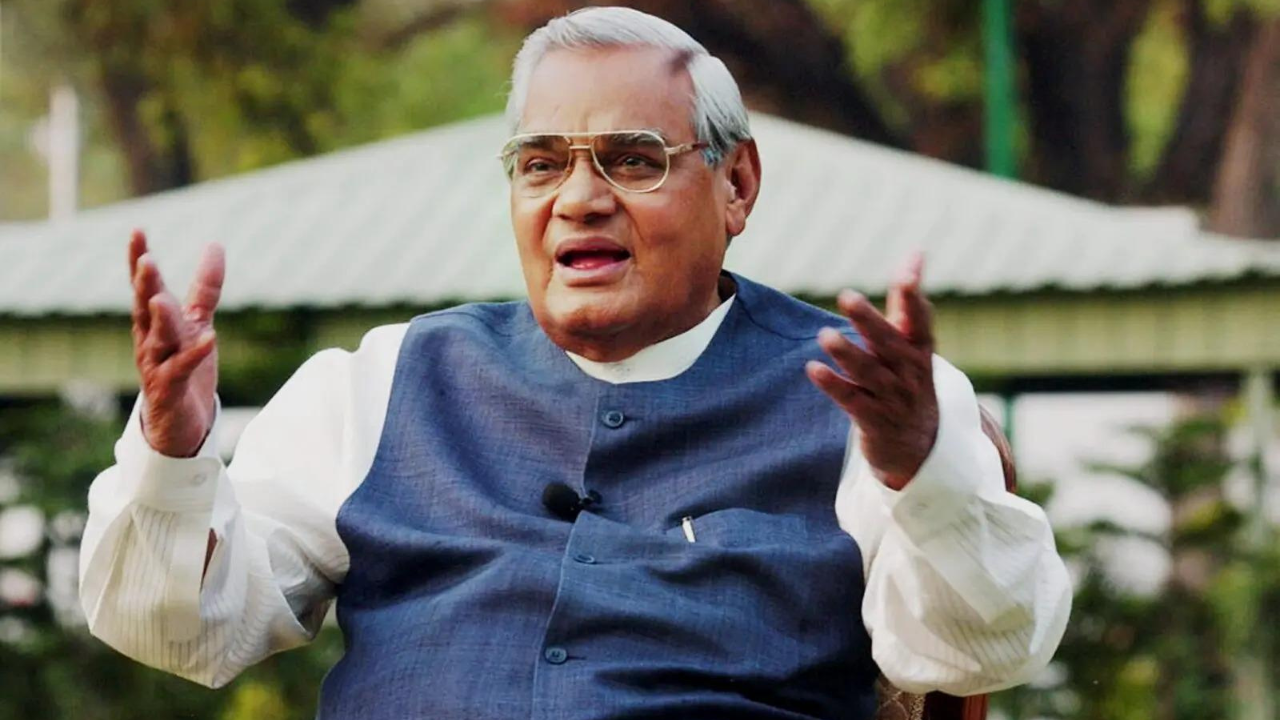 |
|
Atal Bihari Vajpayee, a towering figure in Indian politics, is being remembered on the occasion of his 100th birth anniversary. His life and career serve as a compelling case study of political acumen, strategic maneuvering, and enduring influence within a nation as complex and diverse as India. Vajpayee's journey, marked by both remarkable triumphs and poignant setbacks, exemplifies the intricate dance between ambition, idealism, and the realities of power. This essay will delve into the key aspects of his political career, highlighting his significant contributions, enduring legacy, and the lasting impact he continues to have on India's political landscape.
Vajpayee's early entry into the Lok Sabha in 1957 at the young age of 36 marked the beginning of a long and impactful political career. His initial election from Balrampur, Uttar Pradesh, signaled his ability to connect with the electorate and build a strong support base. This early success was just a precursor to his remarkable ability to win elections from six different constituencies across Uttar Pradesh, Madhya Pradesh, New Delhi, and Gujarat. This feat is a testament to his political dexterity, his ability to adapt to different regional contexts, and the widespread respect he commanded across the diverse regions of India. His capacity to transcend regional boundaries and cultivate pan-Indian appeal became a defining characteristic of his political career, setting him apart from many other prominent leaders.
His ascent to the position of Prime Minister, first in 1996 for a brief period, and then again in 1998 and 1999, solidifies his place in Indian history. His tenure as Prime Minister was marked by significant policy decisions and initiatives. He played a critical role in shaping India's nuclear policy and is remembered for his strong leadership in response to the Kargil War. Beyond specific policies, Vajpayee is perhaps equally remembered for his emphasis on fostering good relations with neighboring countries. His famous visit to Pakistan in 1999, particularly the Lahore Declaration, and his focus on regional cooperation, highlight his commitment to peace and stability in the South Asian region. These efforts demonstrate a pragmatic and nuanced approach to foreign policy, aiming to balance national interests with regional stability and dialogue.
However, Vajpayee's journey was not without its challenges. He led coalition governments, a complex and often precarious task, requiring exceptional negotiating and consensus-building skills. Navigating the dynamics of multi-party coalitions tested his leadership abilities repeatedly. The periods of political instability and the ever-present threat of coalition collapses demanded considerable political acumen and strategic maneuvering. While his coalition governments achieved some significant milestones, they also showcased the difficulties of governing a nation with a diverse set of political interests and priorities. These challenges, however, did not diminish his stature; rather, they served to underscore his ability to lead in difficult circumstances.
In conclusion, Atal Bihari Vajpayee's centennial provides an opportunity to reflect on the remarkable journey of a leader who significantly shaped the political trajectory of India. His electoral successes, his tenure as Prime Minister, and his approach to foreign policy all highlight his political capabilities. His ability to build coalitions, navigate political complexities, and lead India at both internal and external fronts underscore his enduring legacy. Even in the face of political instability and diverse interests, he consistently managed to maintain a national perspective, reflecting his commitment to the unification and progress of India. The iconic images that capture his journey serve as powerful reminders of his enduring impact on India's political landscape, leaving behind a profound legacy for future generations.
Vajpayee's legacy extends beyond specific policies and events. His personality, known for its eloquence, charisma, and ability to bridge political divides, resonated profoundly with the Indian public. He was a master orator, and his speeches often transcended political rhetoric, touching upon the very soul of the nation. His poetry, known for its depth and beauty, demonstrated an introspective side of the politician, highlighting the well-rounded nature of his personality. It’s this combination of exceptional political acumen and human appeal that contributed to his lasting popularity and respect. It’s hard to overestimate the extent of his influence on the Indian political scene; his name will undoubtedly continue to be remembered and revered for decades to come.
The celebration of his 100th birth anniversary is not just a commemoration of a historical figure, but a reflection on the values and principles he represented. His dedication to his country, his ability to build consensus, and his unwavering commitment to the principles of democratic governance stand as exemplary characteristics of a statesman. Studying his political journey will remain invaluable for understanding the nuances of Indian politics, the challenges of coalition governments, and the importance of leadership in navigating complex national and international situations. His legacy continues to inspire and challenge, serving as a benchmark for future political leaders in India.
Source: Atal Bihari Vajpayee's 100th birth anniversary: Iconic images that capture his journey
